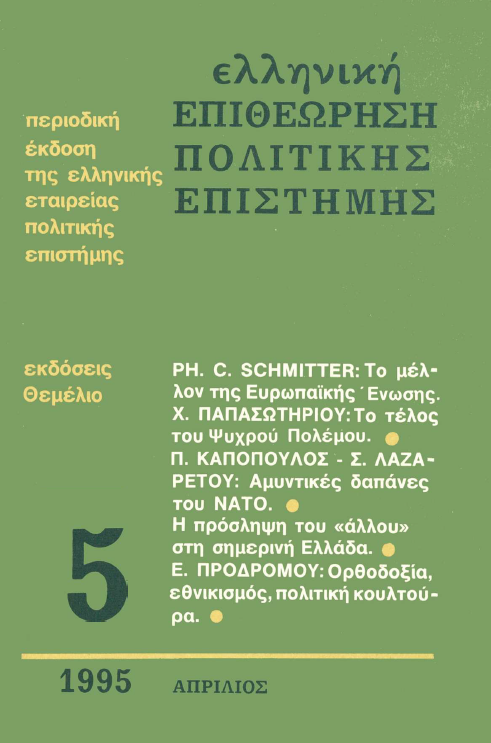Some alternative futures for the European polity and their implications for European public policy

Abstract
Reflecting on the continuing process of European integration, this article attempts to speculate about the type of polity that seems most likely to emerge in the years to come, as well as the consequences of such a development for the European Union’s public policy. Expecting the future political arrangement to be much more complex that a mere federation of sovereign states, the author utilizes well-known notions from the debate on the nation-state (e.g., authoritative allocations, territorial constituencies, and functional competences) and, using a wholly new political vocabulary, focuses his attention on the growing dissociation between them. More specifically, the examination of the shifting balance between territorial and functional competences (or authorities) leads to four possible outcomes, each representing an ideal type (given Latin appellations): stato/federatio, confederano, consortio, and condominio.
In the author’s belief, an increasingly integrated Europe is already moving in the direction of either consortio or a condominio type. To support this argument, he first examines those features of Euro-polity that seem solidified and are likely to persist. Then he analyzes their implications for the future political outcome. Finally, Schmitter identifies three characteristics of collective decision-making which as he claims, do anything but facilitate solutions resembling the stato/federatio space or the confederatici types. These characteristics are (a) «hegemony», meaning that a particular country or region will eventually predominate, thus imposing policy over the rest of the EU; (b) «verrechtligung» or adjudication of emerging conflicts by the European Court of Justice; and (c) «parliamentarization», which denotes the institutional and practical acceptance of the European Parliament as the Union’s supreme organ.
Article Details
- How to Cite
-
Schmitter, P. C. (2017). Some alternative futures for the European polity and their implications for European public policy. Greek Political Science Review, 5(2), 5–24. https://doi.org/10.12681/hpsa.15287
- Issue
- Vol. 5 (1995)
- Section
- Articles

This work is licensed under a Creative Commons Attribution-NonCommercial-ShareAlike 4.0 International License.
Authors who publish with this journal agree to the following terms:
Authors retain copyright and grant the journal right of first publication with the work simultaneously licensed under a Creative Commons Attribution licence that allows others to share the work with an acknowledgement of the work's authorship and initial publication in this journal.
Authors are able to enter into separate, additional contractual arrangements for the non-exclusive distribution of the journal's published version of the work (e.g. post it to an institutional repository or publish it in a book), with an acknowledgement of its initial publication in this journal.
Authors are permitted and encouraged to post their work online (preferably in institutional repositories or on their website) prior to and during the submission process, as it can lead to productive exchanges, as well as earlier and greater citation of published work (See The Effect of Open Access).


